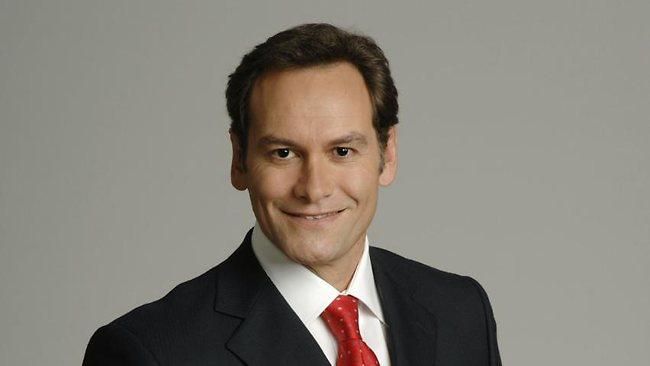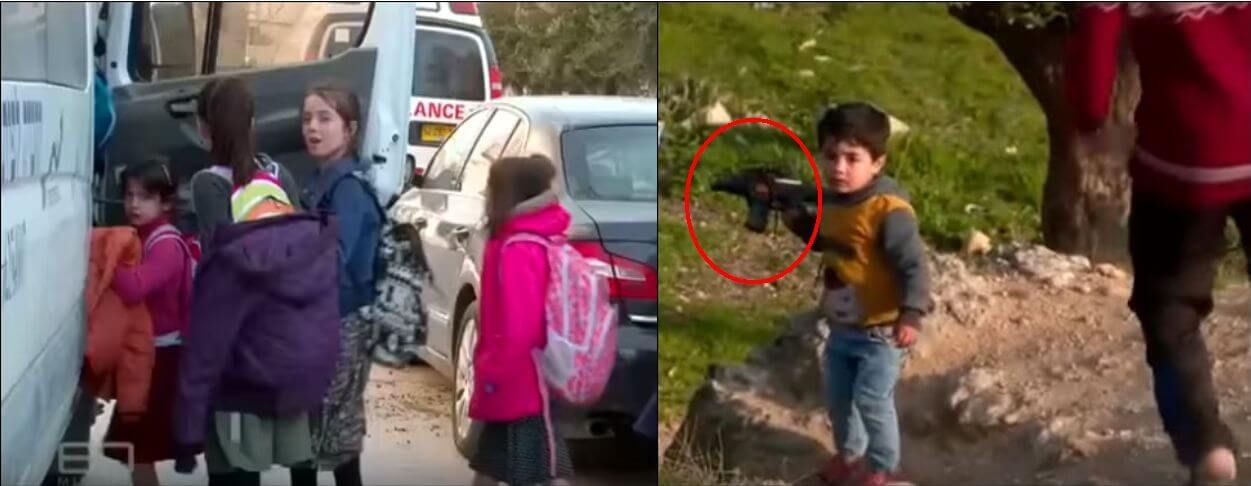Way back in 2009, HonestReporting critiqued a particularly biased TV report by Liam Bartlett on Australian Channel Nine’s 60 Minutes. The program effectively advocated the Palestinian position on the issue of Jewish settlements and Bartlett made it obvious what his agenda was.
Fast forward to 2017 and while the years may have passed and the footage from 2009 has disappeared from the web, Bartlett’s views have clearly not evolved over time. In a repeat performance, 60 Minutes tackles settlements again with an almost identical zeal.
Just a few observations give a clear insight into just how one-sided Bartlett’s report is.
It’s clear where he is coming from within the first minute of the broadcast where there is no pretense that the Palestinian narrative is to be the dominant one:
What outrages Palestinians the most is Israel’s continuing provocation of building Jewish settlements all across the West Bank. The result of this ongoing land grab is more hate, more violence, more death.
Bartlett then claims:
Fifty years after they captured the West Bank, Israel is digging in, building more and more settlements, carving up land where Palestinians had hoped to create their state.
Given that the ground was broken only a week ago for the first new West Bank settlement in 25 years, how can Bartlett possibly refer to Israel “building more and more settlements” in the present tense?
But that’s not the only outright distortion of facts. Bartlett focuses on two families, one an Israeli settler family, the other a Palestinian family living in Bethlehem. According to Bartlett, the Palestinian family feels “suffocated, surrounded by more than twenty Israeli settlements.”
Has Bartlett bothered to look at a map? With Jerusalem to its north and the Gush Etzion bloc of settlements some kilometers to the south west, Bethlehem is certainly not “surrounded by more than twenty Israeli settlements.”
In fact, there are far more Palestinian villages in the vicinity of Bethlehem than Jewish settlements.
After three minutes of the broadcast, Bartlett laments that the Palestinian family is restricted in its movements in the West Bank by Israeli checkpoints. According to Bartlett, the son:
lives in a closed in world of deprivation. He can’t enjoy what other teenagers take for granted, like a trip to the beach or the movies. And he’s not allowed to cross the security barrier to go to Israel without Israel’s say so.
A couple of observations:
- Palestinians on the West Bank are not “deprived.” Bartlett’s use of language is simply embellished.
- Other teenagers do not take a trip to the beach for granted. Like most other world towns and cities, Bethlehem is not located on the coast and Israel has no obligation to allow unfettered freedom for non-Israelis to cross into the country and travel to the beach.
- There is nothing to stop Palestinians from going to one of several movie theaters in Bethlehem to watch a movie.
- Bartlett never mentions why there are Israeli checkpoints and the security barrier. Rather than preventing Palestinian children from going to the beach, these measures are there to prevent Palestinian terrorists from carrying out attacks against Israeli civilians.

We then see the Palestinian son “confined to the streets of Bethlehem” kicking a football, while the Jewish settler son is playing basketball on a modern court as he is able “to do as he pleases.” The entire focus on a Palestinian and an Israeli teen is deliberately meant to highlight the supposed differences in lifestyle, playing into a narrative of Palestinian victimhood. In fact, Bethlehem is under the control of the Palestinian Authority, which has the ability to build infrastructure, including leisure facilities for its youth if it so wished.
Seven minutes in, Bartlett heads to Hebron where he introduces his guide Yehuda Shaul as “a former Israeli soldier…who has turned and become an advocate for the Palestinians. This has made him a traitor to the Israeli settlers. They despise him.”
What Bartlett fails to mention is that Shaul is not an ordinary guy who happens to disagree with Israeli policies. Shaul is a founder of Breaking the Silence, a highly politicized organization that collects anonymous testimonies of Israeli soldiers of alleged and most often unsubstantiated misdemeanors or “war crimes” that it presents to a mainly foreign audience as a means of fighting Israel’s “occupation.”
BtS receives most of its funding from foreign donors and Yehuda Shaul is a paid professional activist, something that Bartlett does not tell his audience. A professional journalist would be concerned with transparency. Bartlett is clearly not.
Bartlett demonstrates his utter disdain for Israeli security considerations when he mentions the spate of Palestinian attacks on Israelis in recent times:
Nearly forty Israelis have been stabbed to death around the country in the past 18 months. The deadly response from Israel has claimed 250 Palestinian lives.
The tone of this statement is meant to imply that Israel has employed disproportionate force as evidenced by the disparity between the two casualty figures. Bartlett fails to mention that most of those 250 Palestinians were killed while carrying out attacks on Israelis or while violently confronting Israeli security forces. Bartlett thus creates a false moral equivalence between victims and perpetrators.
He continues:
But it’s Yehuda, a devout Jew who’s feeling threatened today. This settler yells that he should be hanged for daring to stick up for the Palestinians.
Is Bartlett seriously suggesting that an elderly settler yelling abuse at Shaul represents a similar or greater threat than a Palestinian terrorist? There is simply no comparison and Shaul is highly unlikely to be stabbed or murdered by a Jew.
While the camera focuses on a group of Jewish children getting on a bus, Shaul expresses his concern that the younger generation may become more extremist. Neither he nor Bartlett mention the role of Palestinian incitement in creating a serious impediment to peace in the region. Perhaps the irony was missed in the next camera shot of a Palestinian child carrying a toy machine gun. An adult, perhaps aware of the camera, grabs the child to take him out of view.

Bartlett thus creates another false equivalence between Israeli and Palestinian children. Israeli children are not taught to hate. The same cannot be said for the Palestinians.
As far as Bartlett is concerned, the main obstacle to peace is the presence of Jewish settlements and Jewish settlers. Israeli security concerns are treated with casual disdain while falsehoods and embellishments are employed to create a narrative that fits Bartlett’s biased framing of the story.
Ultimately this is a shocking piece of biased and unprofessional journalism that should not have been aired by a supposedly credible news program. You can register your complaint by sending an email to Channel 9 News – [email protected] – in relation to the 60 Minutes episode “The Great Divide.”
If you would like to sign up to receive our special “Down Under” coverage, please do so below. You will still continue to receive our regular bulletins and the Israeli Daily News Stream (IDNS) if you are currently subscribed.
Please add your email by clicking on the button below to join our HonestReporting Australia and New Zealand news list.
If you live in Australia or New Zealand and see biased coverage of Israel, you can make sure we are aware of it by contacting us through our Red Alert page.




